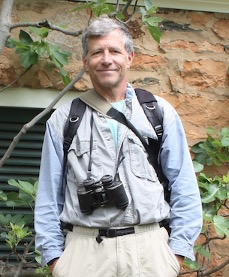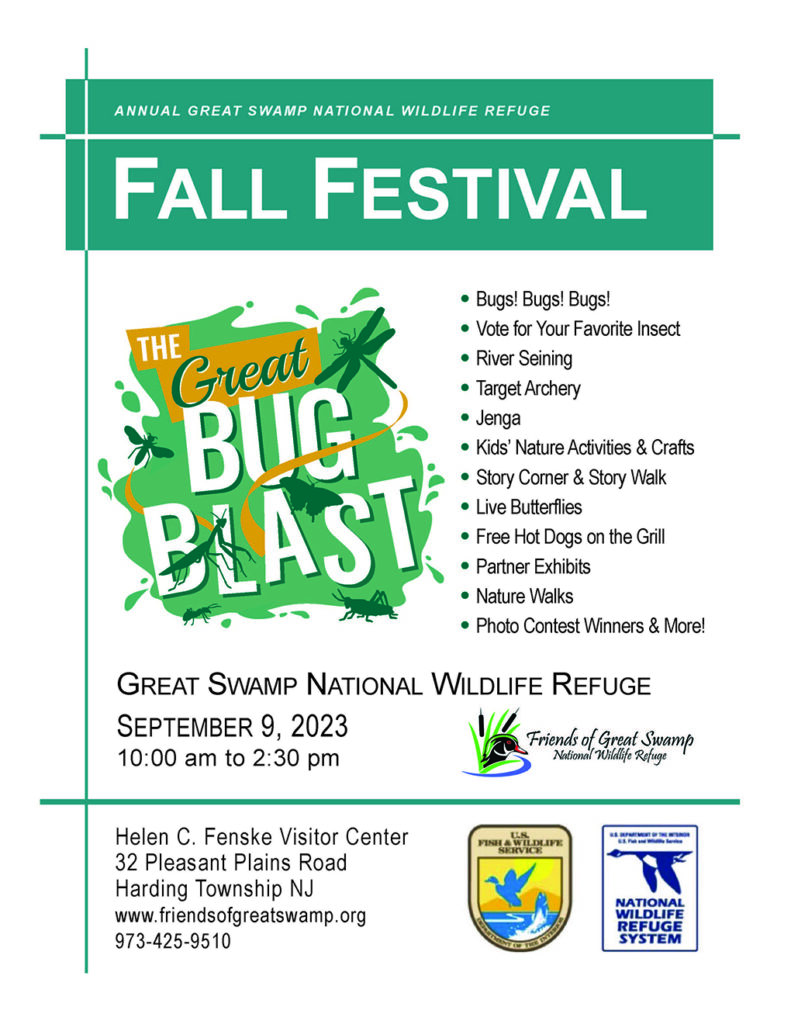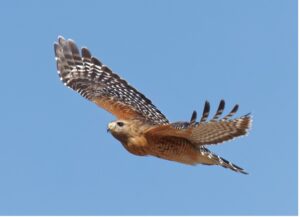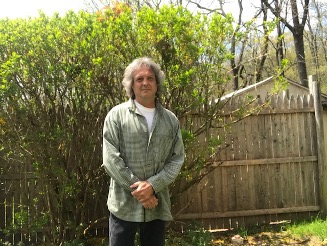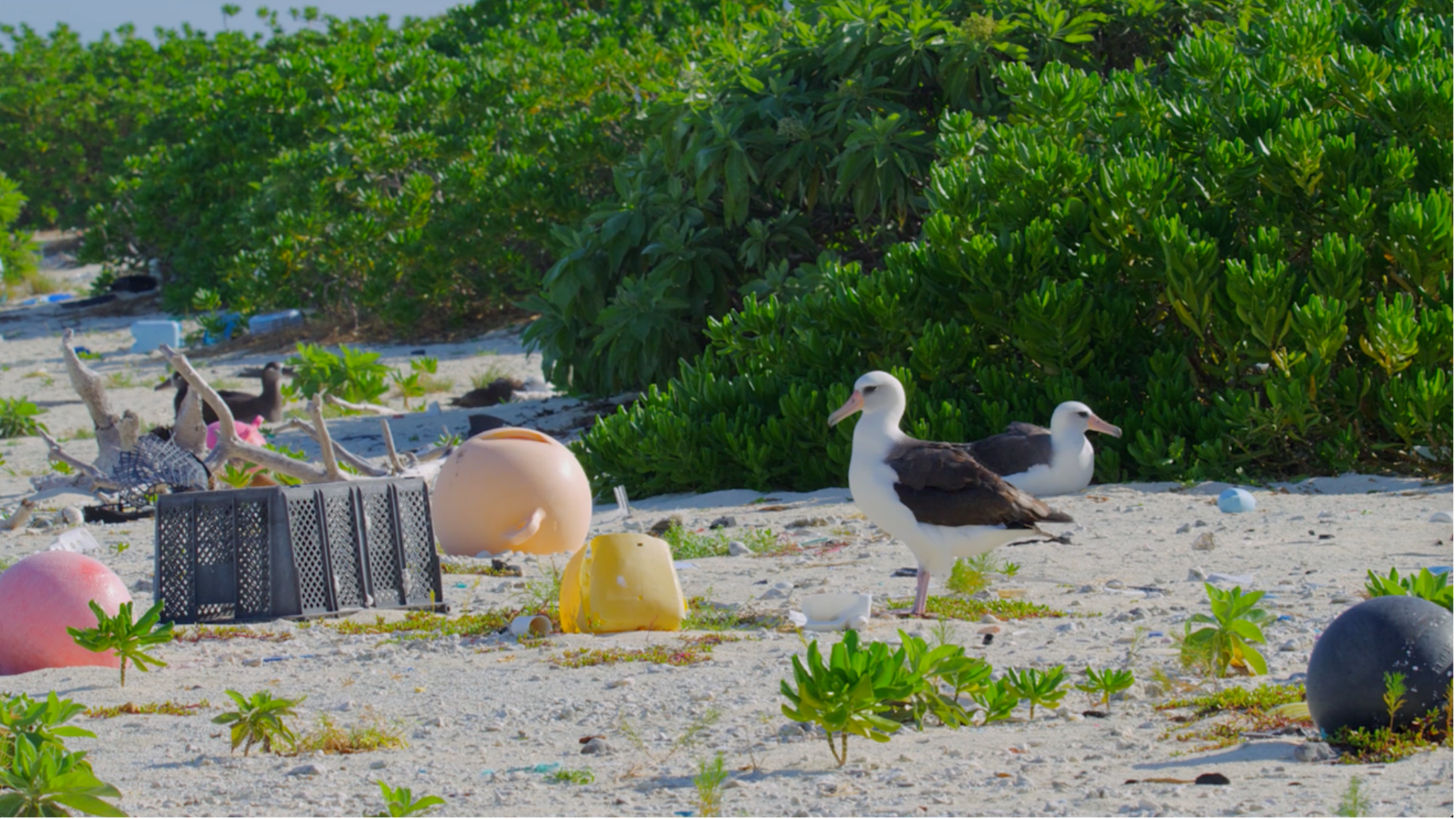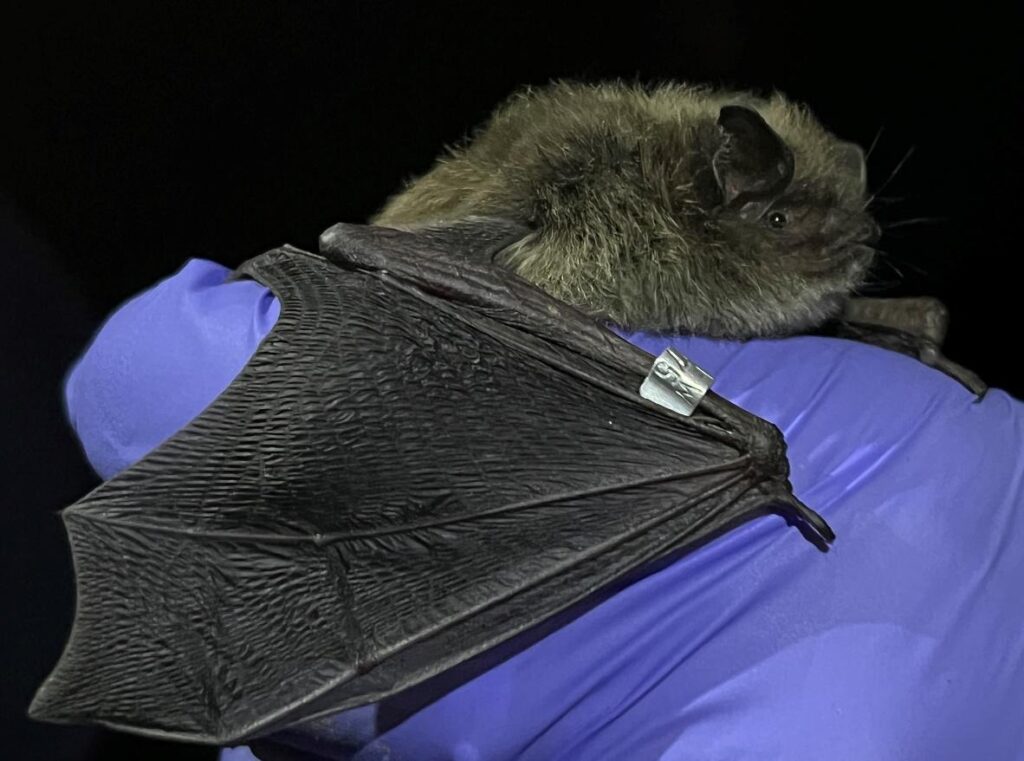
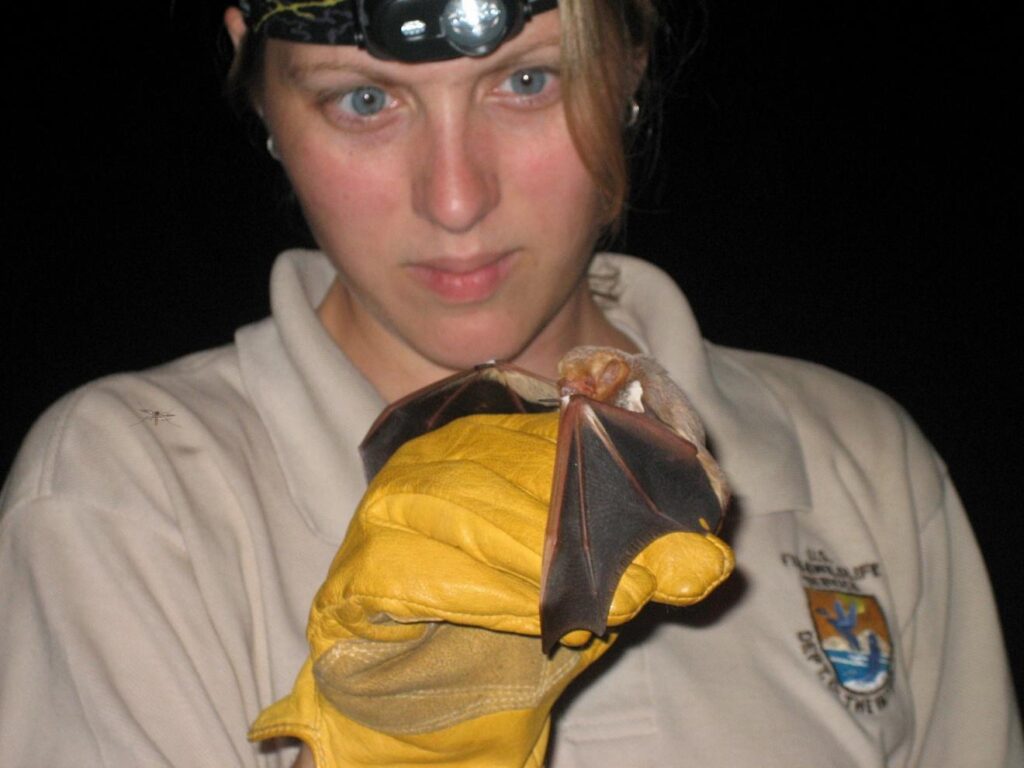
October 8, 2023 1:30 – 3:00 pm
Bats stir fascination, fear, and intrigue. Marilyn Kitchell, FWS, specialist in bats and former biologist and Visitor Services Manager at Great Swamp National Wildlife Refuge, will explore the myths, the fallacies, the diversity, intrigue, and ecological plight of these creatures of the night.
Marilyn is a wildlife biologist now working in public affairs for the U.S. Fish and Wildlife Service’s headquarters Office of Communications. She earned her master’s studying Indiana bats at Great Swamp NWR, was previously the refuge’s biologist and visitor services specialist, and spent two years leading communications for the Service’s white-nose syndrome program, which heads the international response to this devastating disease of hibernating bats.
THIS WILL BE A HYBRID PROGRAM:
– in-person in the pavilion at the Helen C. Fenske Visitor Center (32 Pleasant Plains Road, Harding Township, NJ)
– on Zoom (log-on information will be sent to registrants on Sunday, October 8 at noon)
Registration is required for either in person or Zoom. Sign up at ttsu.me/batsatgsnwr
Second Sunday Event September 10, 2023 1:30pm – 3:00pm
Professor John Harris will discuss his book Returning North with the Spring: Retracing the Journey of Naturalist Edwin Way Teale. Harris visited the same places on the same dates as Teale recounted in his famous 1947 spring journey from Florida to New England. Learn about the changes and surprises Harris found. The book is available from University of Florida Press.
THIS WILL BE A HYBRID PROGRAM: – in-person in the pavilion at the Helen C. Fenske Visitor Center, 32 Pleasant Plains Road, Harding Township NJ – or on Zoom. Log-on information will be sent to all registrants on Sunday, September 10 at noon. Registration is required for either in-person or Zoom.
Sign up at https://ttsu.me/sssept
Second Sunday Event August 13, 2023 1:30 – 3 pm
Robert Lin will describe fall migration of birds and focus on the identification of hawks from his photographs. Robert is a retired wildlife ecologist and wetlands scientist, trained at Rutgers. Robert loves everything outdoors with nature. He is a Friends’ member and a frequent walk leader
and winner in the Friends annual photo contest.
THIS WILL BE A HYBRID PROGRAM: – in-person in the pavilion at the Helen C. Fenske Visitor Center (32 Pleasant Plains Road, Harding Township NJ) – on Zoom (log-on information will be sent to all registrants on Sunday, August 13 at noon) Registration is required for either in-person or Zoom.
Sign up at https://ttsu.me/hawkid
Sponsored by Friends of Great Swamp NWR with generous support from the Marta Heflin Foundation
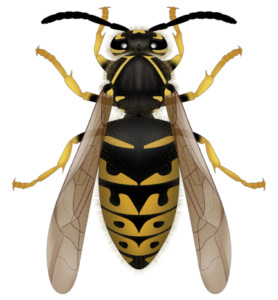
Everyone agrees that bees and butterflies are worth protecting. But wasps are a different story. Learn the surprising truths about the world’s least popular beneficial insects!
Presenter, Chris Alice Kratzer, engineer, scientist and entrepreneur will have her book, The Social Wasps of North America available for sale and signing. $25.00, cash only.
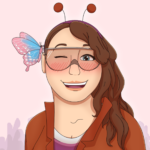
THIS WILL BE A HYBRID PROGRAM: – in-person in the pavilion at the Helen C. Fenske Visitor Center (32 Pleasant Plains Road, Harding Township NJ) – on Zoom (log-on information will be sent to all registrants on Sunday, July 9 at noon) Registration is required for either in-person or Zoom.
Sign up at https://ttsu.me/wasps.
Sponsored by Friends of Great Swamp NWR with generous support from the Marta Heflin Foundation.
Mike Dennis of Traditional Earth Skills LLC will take us back in time to learn about the paleo people of New Jersey who lived here 10,000 years ago and the Native American people of New Jersey known as the Lenape. Learn how these native people lived and how geological changes affected them.
THIS WILL BE A HYBRID PROGRAM: – in-person in the pavilion at the Helen C. Fenske Visitor Center (32 Pleasant Plains Road, Harding Township, NJ) or on Zoom (log-on information will be sent to registrants on Sunday, June 11 at noon)
Registration is required for either in-person or Zoom.
Sign up at https://ttsu.me/lenape
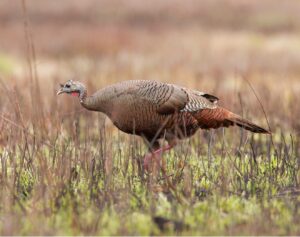
Sponsored by Friends of Great Swamp NWR with generous support from the Marta Heflin Foundation.
Plastic is everywhere and it adversely impacts birds and wildlife even on one of the most remote places on earth, Midway Atoll NWR. Join a video team to learn more about the problem and meet the world’s oldest banded wild bird, “Wisdom”, who has life lessons to share. Friends Board member Judi DiMaio will provide hints on how to reduce our daily consumption of plastics.
The May program will be in-person in the Pavilion at Helen C. Fenske Visitor Center and virtually on Zoom on Sunday, May 14 from 1:30-3pm. The Zoom logon will be emailed to all registrants that Sunday at 12pm.
Register at ttsu.me/plasticpollution


